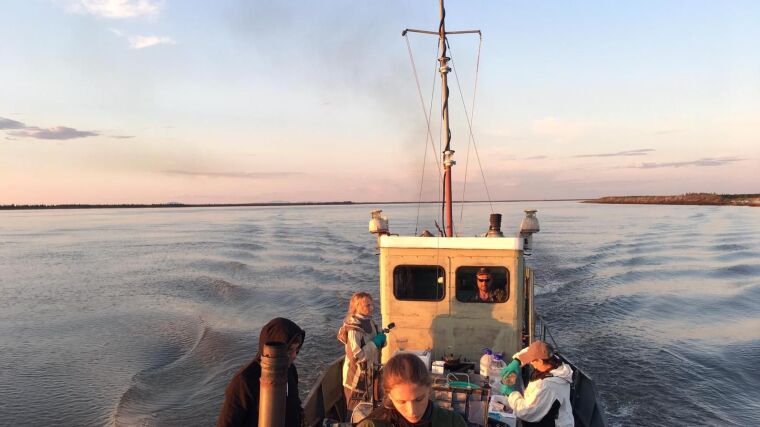
Dr. Castro Morales works with carbon fluxes in inland waters in ecosystems impacted by global warming. She led the DFG project PROPERAQUA (Primary Productivity in Permafrost Influenced Ecosystems of the Arctic) where the spatial and seasonal changes of the aquatic net community production in the main channel and smaller streams of Kolyma River in Northeast Siberia, Sakha Republic in Russia. In this project, highly temporal and spatially resolved measurements of the climate relevant gases CO2, CH4 and O2 are done with state-of-the-art instrumentation. In addition, dissolved oxygen isotopic data and a suit of aquatic measurements are also done during the seasonal transition from spring to summer.
Currently, she is Task leader in the project C-SCOPE - Towards Marine Carbon Observations 2.0: Socializing, COnnecting, Perfecting and Expanding (https://c-scope.pages.geomar.de/web/c-scope_public/External link) funded by the BMBF (German Federal Ministry of Education and Research). In this project, marine Carbon observations are brought to a new level by closing existing observational gaps, improving achievable data quality, and creating synergies as well as new functionalities, with the main aim to connect the carbon observation system more fit for purpose.
In Task 2.2, Dr. Castro Morales is responsible of developing a regional ocean numerical model coupled to biogeochemistry for the Tropical Atlantic with particular interest in the Amazonas shelf system. This tool will help simulating the horizontal and vertical fluxes of carbon between the Amazon River and its shelf system at the tropical Atlantic Ocean. The model output will be calibrated and evaluated with past data of the region and with the newly obtained high-resolution data of carbon-related parameters measured with state-of-the-art instrumentation developed in collaboration with partners in C-SCOPE and installed as part of a ship of opportunity (SOOP) line cruising a portion of the Brazilian coastline. C-SCOPE, is a collaborative project with colleagues from four German research institutions and the State University of Rio de Jaineiro, Brazil.